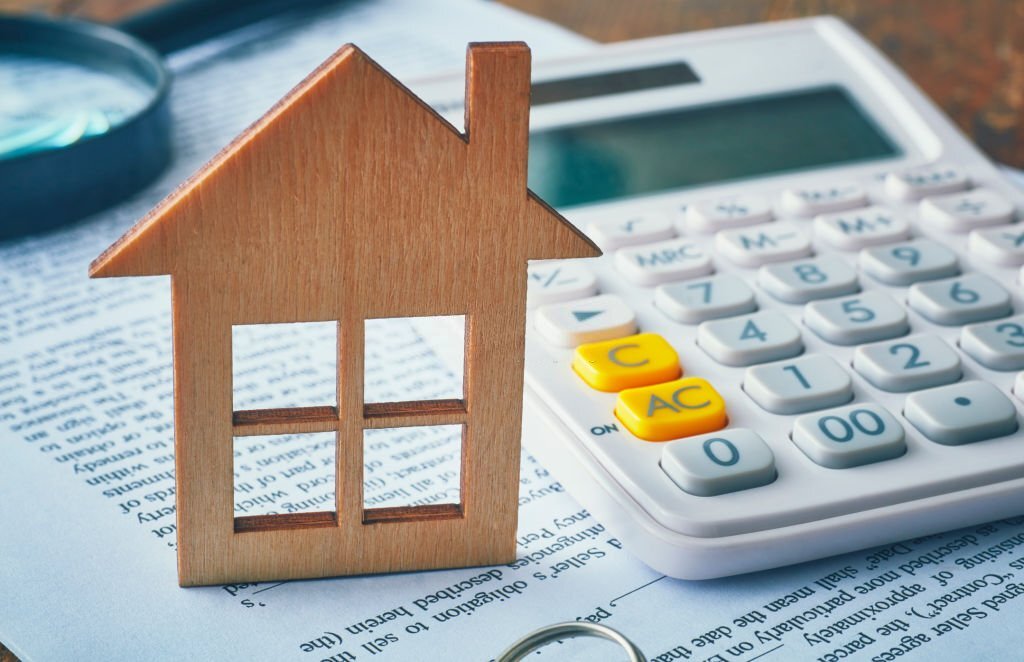When you are considering relocating to Las Vegas means you have to know the monthly cost of living in Las Vegas. There are many advantages to living in one of the country’s fastest-growing urban districts, which makes it an enviable place to call home. In recent years, it has experienced an influx of individuals who have relocated from another state, enticed by the intoxicating excitement of the city’s exhilarating attractions and vibrant nightlife to become permanent residents.
If you live in Las Vegas, you have easy access to a plethora of outdoor recreation opportunities as well as breathtaking national parks. Aside from the hotel industry, there are other work prospects in fields such as health care, technology, manufacturing, and financial services.
But do you have the financial means to live in Las Vegas? For the purpose of assisting you in better understanding the cost of living in Las Vegas properly, we’ve compiled a list of everything you need to know about the city.

Is it expensive to live in Las Vegas?
If you are moving to Nevada, Las Vegas, you are unlikely to spend your money in the same manner that you would as a visitor. However, even if you don’t spend your days gambling up and down the Strip or going to shows every night, you’ll be paying a little more money to live in Vegas than you would anywhere.
The average cost of living in Las Vegas is 11.6 percent more than the national average, according to the Bureau of Labor Statistics. It can vary based on factors such as your career, your average salary and the real estate market in that area. However, when compared to neighboring Nevada communities such as Henderson or Boulder City, Las Vegas has more cheap housing as well as a lower cost of living than these other areas.
How much do you need to live comfortably in Las Vegas?
In las vegas, towards the monthly cost of living, you might need around $2,500 per month to meet all of your expenses, which works out to $30,000 per year. In addition to rent and electricity, $400 goes into a $400 grocery bill as well as auto insurance and petrol money.
However, $2,500 will not leave much room in your budget for discretionary spending or savings. To live comfortably in Las Vegas, you’ll need an annual salary of $40,000 to $50,000, which is a conservative estimate. Having this much money provides for emergencies, savings, and the occasional night on the town on the Las Vegas Strip.
Even with that in mind, the average annual salary of a Las Vegas resident is only $25,555. Because of this disparity, you may find it difficult to make enough money to live comfortably in Sin City.
[elementor-template id=”13242″]
Cost of Living in Las Vegas, Nevada
Las Vegas, Nevada’s cost of living is 3 percent higher than the national average. The cost of living in any place might vary dependent on factors such as your career, your average pay and the real estate market in that area.

Cost of Living Calculator will help you find out more about how your unique demands will weigh in when beginning your investigation to figure out how much it would cost you to relocate. What about Las Vegas vs Phoenix living costs? The answer is living in Las Vegas is slightly higher than in Phoenix. Both Phoenix and Las Vegas offer a reasonable cost of living.
| COST OF LIVING | Las Vegas | Nevada | USA |
| Overall | 111.6 | 110.5 | 100 |
| Grocery | 102.3 | 100.3 | 100 |
| Health | 92.3 | 92.4 | 100 |
| Housing | 118.2 | 127.5 | 100 |
| Median home cost | $334,000 | $358,400 | $291,700 |
| Utilities | 102.6 | 97.2 | 100 |
| Transportation | 128.5 | 116.7 | 100 |
| Miscellaneous | 103.6 | 99 | 100 |
1. Groceries Prices in Las Vegas
As the average costs of food and groceries of the hovers are equal to the national average cost, therefore the grocery costs in Nevada are found to be affordable and available everywhere every day. Out of an average income, an individual in Nevada spends 11% on groceries every month.

Are groceries expensive in Las Vegas?
The cost of Groceries is 2.3% more expensive than the national average in Las Vegas and even 2% more than the greater Nevada. You might spend around $170-$400 on your monthly groceries.
How much does a loaf of bread cost in Las Vegas?
A loaf of fresh white Bread of 500g net weight costs $2.75 in Las Vegas.
How much is a dozen eggs in Las Vegas?
The price of a dozen of regular eggs in Las Vegas, Nevada is $2.03.
2. Cost For Food
If you adore food, Las Vegas is a fantastic place to call home, especially if you prefer all-you-can-eat buffets and other such offerings. Given that many buffet restaurants closed their doors or went bankrupt when the covid epidemic began, a Las Vegas buffet may be one of the few locations where you may gorge yourself on infinite amounts of food and drink. Today’s post-covid Vegas buffet, thanks to improved cleaning procedures and processes, should be a pretty safe place to eat.

How expensive is the food in Las Vegas?
For many residents of Las Vegas, food at 5- star hotels and restaurants are very expensive. Therefore, the overall cost of food in a day in Las Vegas is also expensive but it is possible to maintain a budget for food. While meal costs might vary in price but the average cost of food in Las Vegas is around $67 per day. If you hold to restaurants and buffets off the strip you might pay less than $30 per day on food and drinks.
How much is breakfast in Vegas?
A typical breakfast meal in Vegas costs around $20 on average. Breakfast meals for ages 5-11 cost $12. Weekday brunch (breakfast + lunch) excluding mimosas and champagne costs $20.50 and $14 and weekend brunch (including mimosas and champagne) costs $24 and $17 respectively.
3. Price of Utilities per month
Las Vegas has a desert climate, and the city itself is located in the Mojave Desert, which contributes to the city’s climate. This implies that the days might be quite hot, while the nights can be extremely chilly, which is especially true during the winter months. Because Las Vegas is located 2,000 feet above sea level, the city does not experience the exceptionally high temperatures that are common in deserts. The heat is referred to as a “dry” heat because Las Vegas does not receive much in the form of rain, but it does not imply that you should forego the air conditioning.

How much is the average water bill in Las Vegas?
Las Vegas’s residents pay an average water bill of $70.39 per month. Usually, the water bill increases during summers due to the increase in outdoor watering. Nearly 60% of water use in summers is done while gardening, watering grass, public plants, and trees, fire outbursts, etc.
What is the average cost of utilities in Nevada?
On average, residents of Nevada pay around $450 per month on utility bills which include:
- Electricity bill: ~ $111
- Natural gas: ~ $72
- Water: ~ $70
- Cable TV: ~ $85
- Internet: ~ $60
- Trash and recycling: ~ $15
4. Nevada Healthcare
The cost of living in Las Vegas is 1.8 percent less than the national average when it comes to health care. Your healthcare expenditures in Las Vegas will, of course, be influenced by factors such as your age and overall health. However, you should expect to pay roughly $108.20 for a doctor’s appointment (on average), $106.60 for an optometrist, and $102.60 for a dentist visit, according to the American Dental Association.

Prescription medications can cost up to $486.40 per month on average if they are not covered by insurance. Ibuprofen purchased from a pharmacy can cost as much as $9.27 on average.
[elementor-template id=”13257″]
How much does HealthCare cost in Nevada?
Nevada provides low-cost or free health coverage to poor or needy people. However, the healthcare costs are covered by Medicaid healthcare insurance. Therefore, the average health insurance cost in Nevada is $5964 per individual and $23,855 for a family of four.
How much does Obamacare cost in Nevada?
The Obamacare plan cost varies from $328 – $482 on an average and ranges depending on the area you live, type of plan, and place of employment. Residents can buy Obamacare health insurance through the affordable care act (ACA), Nevada, Nevada health link, or during open enrollment which starts on Nov 1 every year.
5. Las Vegas NV Home Prices
Unless you are not taking advantage of Las Vegas casinos and all-night entertainment, housing will be your greatest expense. Unlike other places, Las Vegas’ rentals have risen owing to the epidemic. Currently, a one-bedroom apartment in Las Vegas costs $1,610 and a two-bedroom costs $1,864.

- Studio apartment: $800 per month on average
- One-bedroom apartment: $948 per month on average
- Two-bedroom apartment: $1,147 per month on average
Is housing in Las Vegas expensive?
The house prices in Las Vegas are more expensive than the US average but cheaper than in Nevada. While the housing value indices of Las Vegas are 118.2, Nevada’s housing value is 127.5. The housing prices in any area differs based on various factors such as an individual’s career, average salary, and the real estate market of that area.
What is the average price of a house in Las Vegas?
The median housing cost of a home of a single individual in Las Vegas is $334,000 which is 3% more than the national average, $291,700. Housing demand in Las Vegas remains on the higher side every time as the home prices have increased by 10% from last year.
6. Average Rent By Bedroom
Housing is often the most expensive monthly expense that you will have to account for in your budget. The average rent in the Las Vegas metro region for a 2-bedroom property is $1,217, which is 3 percent more than the national average rent for a 2-bedroom home. This average, on the other hand, takes into consideration both metropolitan and suburban areas. Consequently, the expenses may increase or decrease depending on whatever community you ultimately choose to live in.

Is rent expensive in Las Vegas?
Rents in Las Vegas are 62.76% cheaper than the national average. The average percentage rent growth in Las Vegas is 19%. While the median rent of one and two bedrooms is not that costly but rents for more than two bedrooms with other luxuries cost more than $1500 which is higher than the US average of $1219.
How much does it cost to live in an apartment in Las Vegas?
The average cost to live in a rental apartment in Las Vegas is $1191. A one-bedroom apartment might cost you around $980 while a two-bedroom apartment might cost around $1250 a month. Lately, a huge demand for the lesser available apartment units is creating more competition among tenants, landlords, and property managers, whoever can pay a mouth-bid price can get their dream home.
7. Las Vegas Tax Rates
Nevada is one of just a few states that does not have its own state-level income taxation system. The state sales tax is 6.85 percent, and when combined with the Clark County sales tax of 1.525 percent, you’re looking at a total sales tax of 8.375 percent for Las Vegas. This implies that for every $1,000 you spend in Las Vegas, you will be taxed $83.75 of that total amount (except for exempt items, such as grocery food, of course).

How do I calculate sales tax in Las Vegas?
The formula to calculate the sales tax in Las Vegas is by using a simple formula:
Total sales tax = selling amount × sales tax rate.
How much taxes do you pay in Nevada?
Residents of Nevada pay a local sales tax rate of 6.85% which is the seventh-highest value in the US. Nevada is one of the seven states in the US that doesn’t impose any income tax.
Are taxes cheaper in Las Vegas?
Unlike California and New York, residents of Las Vegas, Nevada enjoys 0% income tax rates and reasonable property tax rates that are less than the national average.
8. Las Vegas Public Transportation
Vegas is best explored by vehicle. The city’s public transportation is provided by the RTC (Regional Transportation Commission of Southern Nevada). RTC connects the city and its environs with 39 routes. Plus, Las Vegans receive a better deal on transit than visitors.

Car insurance is more expensive in cities than in other parts of the country. Auto insurance costs between $5,230 to $7,490 yearly, around 8% to 10% more than the national average. Getting about Las Vegas without a car is doable, but not popular.
What is the cheapest way to get around Vegas?
The best yet cheapest way to roam around Las Vegas is by taxi or bus. The RTC, Las Vegas offers 24-hrs bus routes all over the day providing easy, safe, and affordable transportation services. The taxi services like Uber or Lyft also offer quick moving options for $3.50 with additional mile charges of $2.76.
Is public transportation free in Vegas?
The public transportation, Bus fares, operated by RTC in Las Vegas are paid by distance traveled, time, and bus passes that are purchased from ticket vending machines situated at the bus stops or the RTC smartphone app. A two-hour bus pass costs $6, 24 hr bus pass costs $8 and a 3-day pass costs $20.
[elementor-template id=”13247″]
9. Average Cost For Energy & Fuels
In most cases in Las Vegas, the monthly expenses for gas and electricity bills are determined by use, which is directly related to the size of a house and the quantity of gas and electricity required by the tenants. It is possible to make a house more energy efficient by employing energy-saving equipment, replacing outdated windows and doors, and performing routine maintenance on the heating and cooling systems.

What is a typical electric bill in Las Vegas?
A family of four in Las Vegas can expect an average electricity bill of around 135 per month. However, the NV energy department provides an equal payment option to their permanent customers to pay their average yearly bill by splitting it into 12 equal installments.
Is electricity cheaper in Nevada?
The electricity bill in Nevada has an average rate of 12.5 cents/kWh which is cheaper than the US average i.e. 13.92 cents/kWh.
What is gas prices in Las Vegas?
The current regular gas price in Las Vegas is $5.15 and diesel is $5.296.
10. Miscellaneous cost
Other than the important cost of living indices we have discussed above, there are some other minor expenses that we might consider important to know while we are discussing the cost of living in Las Vegas, e.g – moving costs, other taxes, restaurant meals, dry cleaning and laundry, school and college tuition fees, and other dozens of items. This will help you in creating a monthly budget for the cost of living expenses.

Average Miscellaneous Charges
It’s assumed that residents of Las Vegas spend around 20% of their salary on miscellaneous expenses. The breakdown of that 20% expenses is as follows:
| Miscellaneous expenses | Expenses in % |
| Restaurant meals | 30% |
| Education | 7.4% |
| Personal care products | 7.3% |
| Entertainment | 25.8% |
| Clothing and services | 15.8% |
| Smoking and tobacco products | 3.7% |
| Library reading | 1.1% |
| Additional miscellaneous cost | 10% |
Las Vegas Cost of living FAQs
Is Las Vegas an affordable place to live?
Las Vegas is an affordable and best place to live in Nevada for young adults, students and expats due to its low tax rates and lower cost of living. Especially, expats and young adults find Las Vegas as the best place toThe state does not impose any income tax because the revenue earned by them through tourists and import-export business make the city one of the best places to live in.
Conclusion
Are you making your move to Las Vegas, Nevada? Don’t worry! As it is one of the country’s fastest-growing urban districts, which makes it an enviable place to call home. Nevada community property laws delineate that, spouses are entitled to half of the community property or marital assets, they can’t deviate from the 50/50 formula. What implies is Nevada is a 50-50 divorce state. In recent years, it has experienced an influx of individuals who have relocated from another state, enticed by the intoxicating excitement of the city’s exhilarating attractions and vibrant nightlife to become permanent residents.
It’s easy to understand why the city has earned a slew of titles, like the Entertainment Capital of the World and the Neon Capital of the World, for its vibrant nightlife. You get the impression that anything can happen in Vegas, and you’re finally settling down for the duration of the festivities.
[elementor-template id=”13252″]
